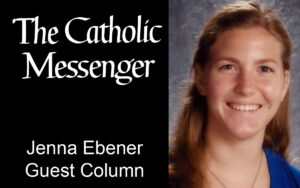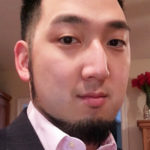 By Jenna Ebener
By Jenna Ebener
I have always been fascinated with the concept of a true name. The books and movies I have been most drawn towards often involve at least one character discovering the truth about who they are. This concept of knowing oneself is evident in Disney movies such as “The Lion King,” when Mufasa reminded Simba to “remember who you are.”
Over the past decade, I have done a lot of self-reflection about who I am with the hope that God would provide me with some sort of true name and self-assurance. I have made timelines highlighting events of my life and common themes, taken personality inventories and read non-fiction and fiction books. While all of those exercises were enlightening, I never felt like I truly understood myself.
When I received a concussion in September 2021, I realized I defined my self-worth through external sources, such as getting good grades, being successful at my job or receiving praise from others. It was not until recently that I realized I had also been looking at my identity in a similar way. I had been looking at characteristics of myself thinking that those must be what define me. I had been focusing on labels such as social worker and daughter; personality traits such as compassionate, spiritual and optimistic; and values such as relationship-focused and hardworking. While all of those aspects are important and have shaped who I am and who I have grown up to be, they are missing a key piece — the beginning. I was so focused on the “what” that I lost sight of the “who.” I needed to go back to the beginning and remember who created me and why.
So, I combed through Scripture and focused on God’s messages of creation. I told myself how I was created in God’s image and was very good. Yet, I had so much shame built up that I could not believe in my heart that what I was telling myself was true. I did not feel worthy of his words.
What changed that belief for me is both simple and complex. I spent a week in group therapy to discover who I am. We did experiential exercises that allowed us to deeply reflect on who we were as children and what messages we received from the world as we grew up. We learned to talk to ourselves at various stages in our lives to tell ourselves what we needed to hear at that time. Through those exercises of identifying different parts of ourselves, I was able to feel compassion for them. For I saw myself growing up through the viewpoint of God. I could finally look at my child and teenage self not with self-judgement, but with self-compassion. Then, for the first time in my life, I was able to turn that self-compassion back to my present-day self. For I finally recognized the truth of who I am. I am now able to both identify and believe the traits in me that are true about all humanity. I was able to find the affirmations that sit closest to my heart and believe them with my whole being: I am inherently worthy. I am good. I am lovable. I am enough and I matter, and so do you.
“You have been set apart as holy to the Lord your God, and he has chosen you from all the nations of the earth to be his own special treasure” (Deuteronomy 14:2).
(Jenna Ebener, a graduate of St. Ambrose University in Davenport, is a social worker at a school in Colorado for students with a combination of medical, cognitive and behavior disabilities. She relies on God every day to aid her on this wonderful, yet intense journey.)











